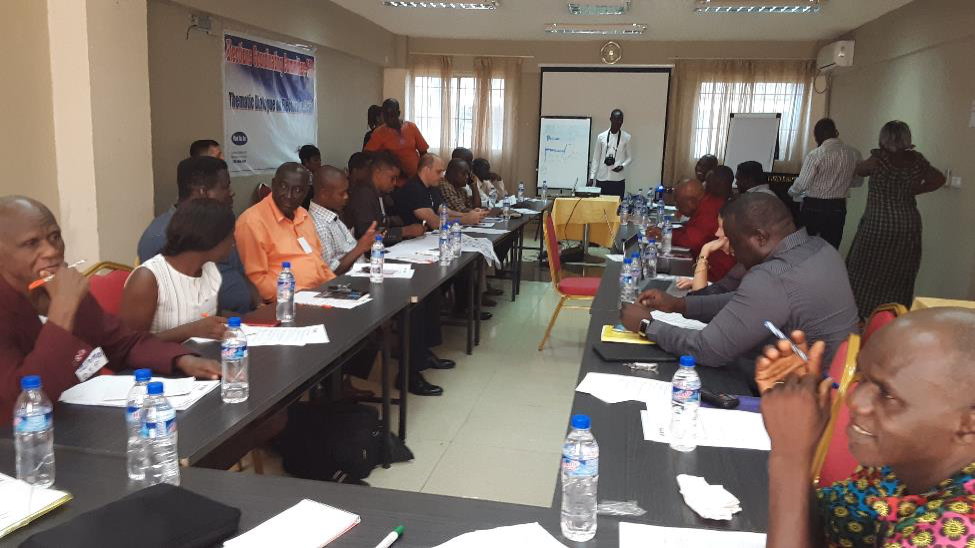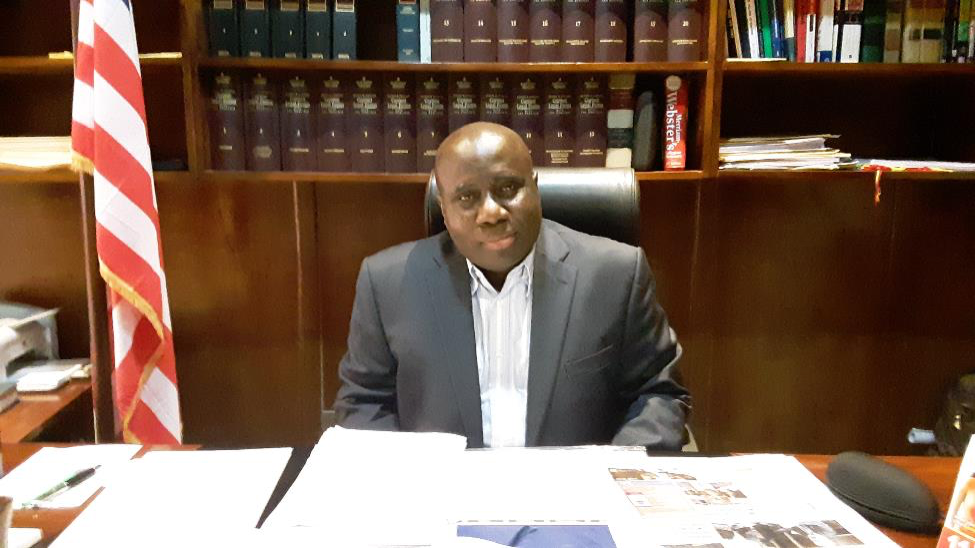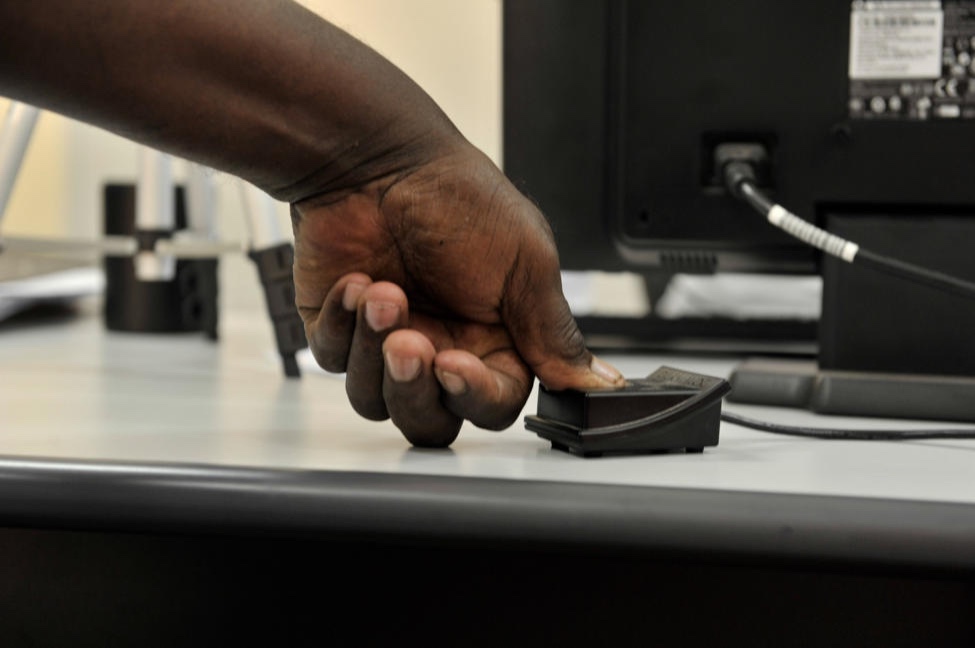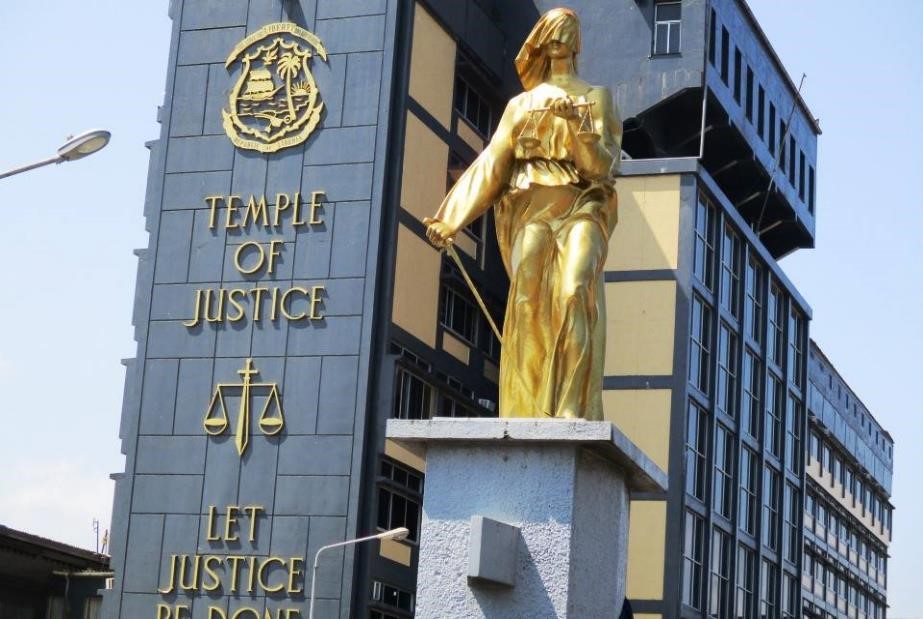MONROVIA, Montserrado – Political parties in Liberia have identified the adoption of a biometric voter registration as their priority for electoral reform.
A lack of credibility of the National Elections Commission data in the voter roll brought a serious challenge to the 2017 general and presidential elections, as it contained duplicate data and other symptoms of a database that were not subjected to rigorous data quality requirements.
During a stakeholders’ dialogue organized by the Elections Coordinating Committee, a consortium of civil society organizations covering elections in the country, representatives of political parties collectively identified adopting a biometric voter registration as the greatest need for restoring credibility and confidence in future elections.
All political parties currently registered in Liberia, except for the Congress for Democratic Change, National Patriotic Party, and Liberia People Democratic Party which all makeup the governing Coalition for Democratic Change had representatives attend the forum last Wednesday.
The ECC noted that it had extended the invitation to all political parties.
The 23 political parties emphasized that priority is placed on the adoption of a biometric voter registration system to improve future elections because according to them, the controversy over the 2017 voter roll hung a cloud over the credibility of the entire process.
Virtually all stakeholders during the 2017 elections recognized the need for a change to the voter registration system to ensure it is no longer plagued with issues observed during the 2017 elections. While influential journalists who covered the elections called for the National Elections Commission to fix its issues, all major international observer missions had recommended the adoption of the nascent National Identification Registry for NEC to use in obtaining its voter roll.
The European Union’s observer mission emphasized the need for this system to be passive as a means of “enhancing participation in elections and addressing uncertainties inherent to active voter registration.â€
With the current system, NEC sets a limited period before each election for voters to register. Unlike with the National ID cards, current voter registration cards are handwritten, and individuals’ biometrics are not captured and stored electronically. Moreover, because of the limited timeframe, and because of the manual nature of the work to create the voter ID cards, there is a higher chance for errors or mistakes. It is also easier to forge the cards.

Political party representatives discuss their ideas for electoral reform. Photo: Gbatemah Senah
The chairman of the All Liberian Party, Theodore Momo, said a biometric voter registration would best address the credibility issues that were experienced with the 2017 voter roll. Although there are suggestions that the date of the National Identification Registry is used to derive at a national voter roll, Momo said the NEC must conduct its own biometric registration.
“That would minimize a lot of manipulations, a lot of dissatisfactions, a lot of hindrances in the electoral process,†he noted.
Blamo Nelson, United People Party’s co-chair for planning and strategy, also agreed that the 2017 voter roll formed the foundation for litigations that caused the delays in the runoff presidential election. He said the UPP is also calling for a biometric voter registration using the National ID Registry in future elections. Nelson said the NIR would also address voter trucking, as people would be made to vote where they reside.
However, NEC’s chairman, Jerome Korkoya, said the NIR would not be appropriate for future elections because it has not yet been tested in any exercise. The 2020 senatorial elections are almost two years away and Korkoya did not disclose any plans to begin testing using NIR data.
Instead, he said the problem with the voter roll in the 2017 elections was the slow procurement of elections materials for voter registration, which contributed to the challenges in achieving a synchronized voter roll. He called for financial autonomy for NEC, which he said would prevent such logistical challenges in future elections.
He said running behind politicians for funding can often undermine NEC’s neutrality.

United People Party’s vice chair, Blamo Nelson. Photo: Gbatemah Senah
Besides the need for a biometric voter roll, political parties expressed frustration that partisans exhibited no loyalty to the parties on which ticket they were elected. The ALP’s Theodore Momo, a former senator who was previously a Unity Party member, spoke strongly against individuals who contested on opposition political parties and immediately switched to the ruling party after their election. He said such acts weaken political parties and must be curbed by a regulation that commits individuals to remain with parties they contest on to get elected positions in government.
“It is an unfair treatment. We feel that there should be some control mechanism into place by the electoral body to curb this kind of unfairness in the electoral process because it does not strengthen political parties; it does not speak well of our democracy. It means that people are only using political parties as a conduit to get to the House [of Representatives],†said.
“But the real thing that concerns democracy is representation. If a party has two, three persons in parliament, how they relate to [the] party and how they push the party’s overall agenda in terms of contributing to national development in parliament. Then it strengthens the political and its voice in government.â€
Nelson, of the UPP, agrees and is also calling for regulations that require elected officials to resign their positions before resigning from the political parties they got elected on.
“Maybe we can have a law that says, as long as you got elected on this party ticket, you are legally bound to remain with the party until the next election, then you can switch until you want to,†he said.

The All Liberian Party’s chair, Theodore Momo. Photo: Gbatemah Senah
Both Nelson and Momo said their parties also welcomed the ECC’s recommendation of publicly funding political parties. However, they said such must be done under certain conditions, given the scarcity of public resources and the proliferation of political parties.
Momo recommended that parties receiving public funds must win a certain number of seats in the legislature or accumulate a particular number of votes in an election.
“But I think funding to political is necessary because if we don’t do so, political parties will be entities with membership, but no ownership,†he said.
Nelson, whose party placed worse than the ALP in the last election, advocated for other benchmarks besides the number of seats won in the legislature or voters accumulated in an election. He said such restrictions would place many parties at a disadvantage.
“I think we should identify smart incentives – incentives that enable everyone to try to do their best. For example, some of the guidelines we could use are, the more women you have in your executive committee, the more incentives you get,†he said.
He added that the incentives would encourage women participation by political parties’ compliance of the law. UPP had the highest raw number and percentage of women of all political parties in the 2017 elections – 15 women and 23.8 percent.
As for Momo, whose party performed just worse than the average political party in terms of women’s representation among candidates put forth, he said there was no need to change the elections law to make the 30 percent requirement from each gender enforceable.
“I think it must remain as it is because we cannot legislate people’s ambition,†he said.
“If you say it must be 30 percent, suppose the people don’t want to run?†he said, adding, “You cannot force them so, I think we should keep it as it is, but reinforce the fact that makes women willing and ready to participate in electoral process.â€
While Momo said ALP wanted to take the responsibility for dispute resolution from NEC and to ensure that commissioners of NEC are vetted through public scrutiny that would involve political parties and national civil society members, Nelson said such was not necessary as it would not lead to any significant change on the function of the commission.
“When you have credible people, respectable people, honorable people managing these systems, it does not matter whether the mother of President [George] Weah is the chairman of the elections commission. As long as there is compliance with the law, it should work and shouldn’t matter,†he said.
He recalled that in 2011, he lost in his re-election bid in the Senate while his wife was the chairman of NEC.
Meanwhile, NEC chairman, Jerome Korkoya, says the commission is seeking an amendment to ensure financial autonomy and remove the tenure limits.
Korkoya said, in Ghana, for example, commissioners are appointed by the president and can be removed after retirement or removed for cause. He denied that having commissioners serve for long periods would undermine their credibility.
“The longer you stay in the more you will have a lot of acknowledging respect on how to do the same thing differently and maybe more efficiently,†he said.

Jerome Korkoya, chair of the National Elections Commission. Photo: Gbatemah Senah
He said always introducing new commissioners was not healthy for any electoral process, because they would be required to undergo a new learning curve.
“This is not just about job security for me or anybody,†he said. “Where you have long tenures, people tend to device other means that can make the electoral process not only more transparent but more efficient.â€
According to him, the current structure of the commission does not allow for any commissioner to manipulate the process of election, even if the individual is not credible.
He also agreed with the ECC for the law to list specific violations for which commissioners can be removed.
He said most of the ECC’s recommendations, including the proposed reduction in the number and tenure of commissioners, were targeted to affect individuals, especially members of the NEC. He argued that the tenure and number of commissioners do not affect the quality of elections.
Korkoya also strongly reacted on the ECC claims that the current law also gives the chairman of the elections commission undue power and responsibilities, such as the requirement of a quorum that must include the presence of the chairman.
He said the elections commission is a professional group of dedicated people established by law rather than a political organization.
“The reason to get seven commissioners is to get different inputs from different backgrounds, then of the seven, you have to have one that will have some power for overall supervision,†he said.
Korkoya said the chair of the commission, like the chief justice of the supreme court and the speaker of the legislature, is there to provide overall supervision on specific matters. He added that although the law provides that the chairman presides over meetings, the co-chair can perform a similar role in the chairman’s absence, except when it requires a policy decision that requires a quorum.
The NEC chairman, speaking during The Bush Chicken’s interview, rejected calls to amend the current election date and to establish an extrajudicial body to assume NEC’s judicial responsibilities. He said the two proposed amendments should not form the basis for electoral reform.
“NEC is the referee not by accident, [but] because NEC develops the rules for the elections,†he said.
However, the NEC Chairman expressed the need to increase funding to the commission to increase public engagement on civic and voter education as part of the efforts to improve future elections.
This article is the last of four in a series on electoral reform. It is published by The Bush Chicken through the support of Internews. Read articles one, two, and three.
Featured photo by Tobin Jones/AU UN IST PHOTO



